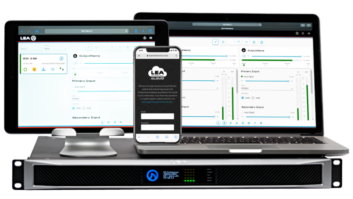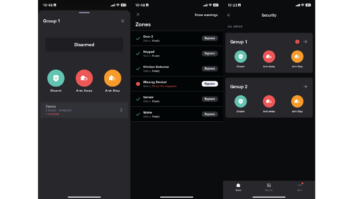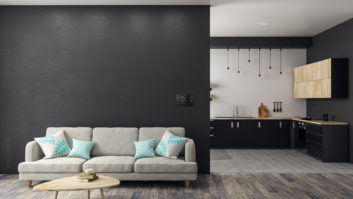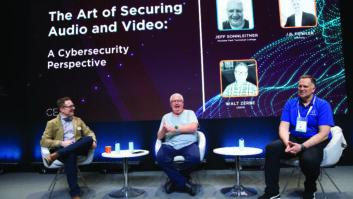As unveiled at ISE 2010, bloom is a new computerised system from Niko (UK) which aims to make life easier for both residential care-providers and the residents they serve. Speaking to IE Residential, Niko sales director Stephen Calder outlines the development of the system and reveals some of the company’s other plans for 2010.
Q: What made ISE the right venue for the launch of bloom?
A: ISE has become the European centre for electronic integration, attracting nearly 30,000 visitors this year. There are many routes to market for bloom: care shows, disability shows, magazines and cold-calling. Our experience in the UK shows us that integrators are operating in three sectors – residential, commercial and care – and can cross over from one market to the other seamlessly. At ISE 2010 there were a dozen companies exhibiting nurse call systems as stand-alone products. bloom is a nurse call system, and with the Niko Group of Companies owning bloom, intensia and nikobus, we determined that many attendees would be able to sell, install, program and integrate all three brands.
Q: In a nutshell, what is the USP of the bloom concept?
A: The integration of nurse call, registration and domotics is the USP of the bloom concept. Nurse call from a remote worn by the resident or from an RF keypad in the room or en-suite, [along with] a push on the dial of the bloomstation, will inform the nurse station of where and for which individual assistance is required. Software for the registration of residents, their care planning and medication planning is fed into the system, allowing tasks to be revealed on the bloom stations for each resident; by pressing the action buttons, the administration is updated to indicate that each task has been carried out. Finally, bloom’s domotics mean that the remote control worn by residents can be used not only to summon help, but also to switch lights on/off and open/close curtains. The bloom station itself has a thermostat allowing the regulation of day- and night-time settings for each resident.
Q: In what ways are the broader integration requirements of care homes evolving, and how can Niko/bloom respond to these developments?
A: Care homes are drowning in paperwork and are struggling to recruit, train and retain staff. Trust can also be a problem if a resident complains of neglect. bloom provides a complete trail of activity in real-time so management can trust staff, while residents’ loved ones can trust management to look after their family members in their care. With bloom, care home groups can access all care homes in their portfolios and store information offsite. Medication task information including dosages, timing and special requirements is uploaded to the system, and inaccurate information is eliminated. Moreover, bloom can overcome language problems as no writing is required by nursing staff – they simply follow a menu of tasks. This allows bloom to respond easily to the future needs of care homes.
Q: Finally, what else can we expect to see from Niko (UK) during the rest of 2010?
A: There is lots of activity going on! Highlights of the year ahead are set to include exhibiting at the (UK) Homebuilding and Renovating Show, training NICEIC electrical contractors, CPDs for architects and three more additions to our sales team. Training is empowerment and as we lift ourselves out of recession integrators will be ready to offer automation as an option to their clients. We also want to make not only residential but commercial and care projects a target for automation and integration. So, in short, it’s going to be a busy year!
Stephen Calder was speaking to David Davies.







